Is Gaming Keeping Young Men Out of Work?
Ashley Allen / 7 years ago
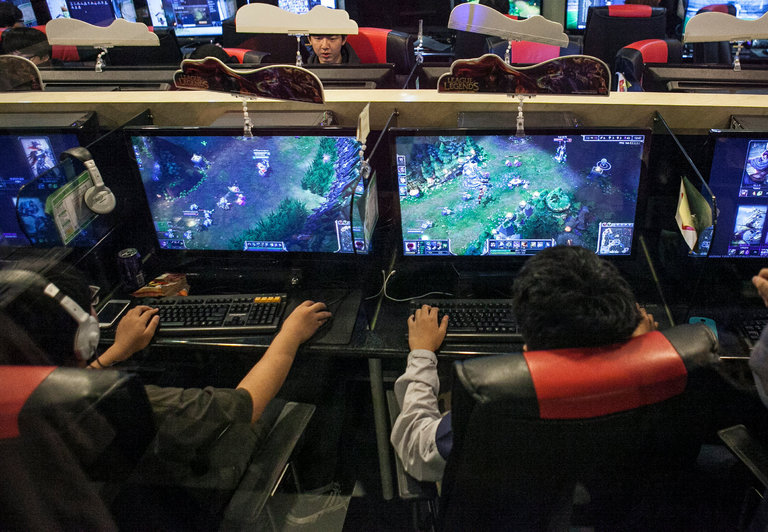
The US National Bureau of Economic Research is concerned that American men are working fewer hours. In 2015, men between 21 and 30 years-of-age worked 163 fewer hours than in 2000. While working hours for both men and women, young and old, fell during that period, young men’s working hours fell disproportionately more. Why? Because of video games, the National Bureau of Economic Research says in a new paper, Leisure Luxuries and the Labor Supply of Young Men.
Gaming is More Emotionally Rewarding Than Work
Modern social gaming gives players a sense of communal achievement. In contrast, many jobs no longer satisfy ambition. Instead, they serve only as a means to earn money. If gaming is taking young men out of the workforce, is this why? Jane McGonigal, video game scholar and game designer, told The New York Times:
“Games provide a sense of waking in the morning with one goal: I’m trying to improve this skill, teammates are counting on me, and my online community is relying on me. There is a routine and daily progress that does a good job at replacing traditional work.”
Games are also not very good at encouraging players to take a break. Adam Alter, professor of marketing and psychology at New York University, explains that games don’t punctuate in the same way as, say, commercial TV. Alter says:
“Many video games don’t have them. They’re built to be endless or have long-range goals that we don’t like to abandon.”
How Men and Women Spend Their Free Time
The NBER notes a correlation between a fall in young male employment and an increase in their video game play over the last decade. Only young men increased the hours they spent gaming; figures for older men and women of all ages remain roughly the same.
Younger Men (age 21-30)
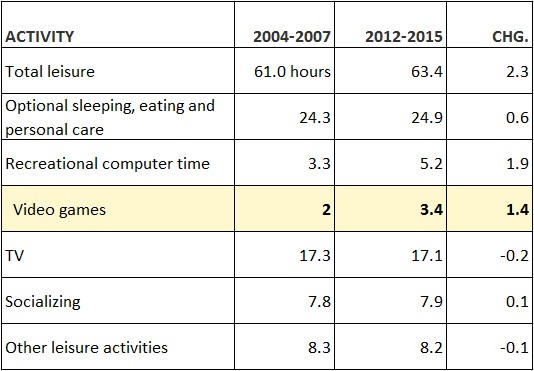
Younger Women (age 21-30)
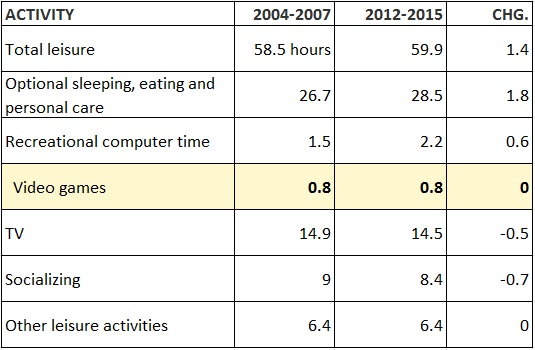
Older Men (age 31-55)
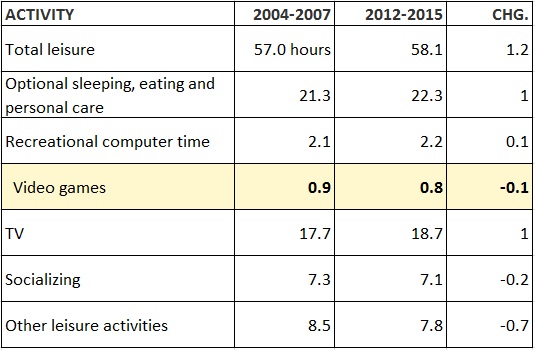
Older Women (age 31-55)
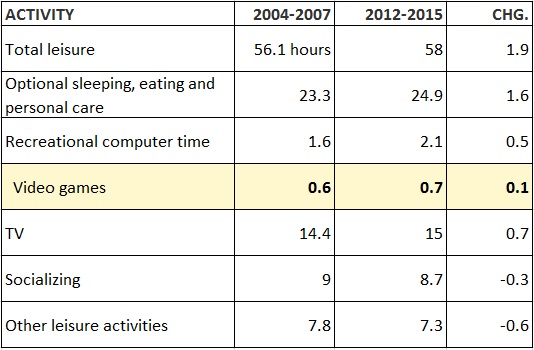
What Does the Data Say?
Remember, though: correlation is not causation. The idea that young men work fewer hours due to gaming is unsubstantiated. It is a hypothesis, neither confirmed nor denied by the available data. Young men playing more video games could just as easily be thanks to a reduction in employment opportunities. Less work and more time equals more video game playing? What do you think?



















